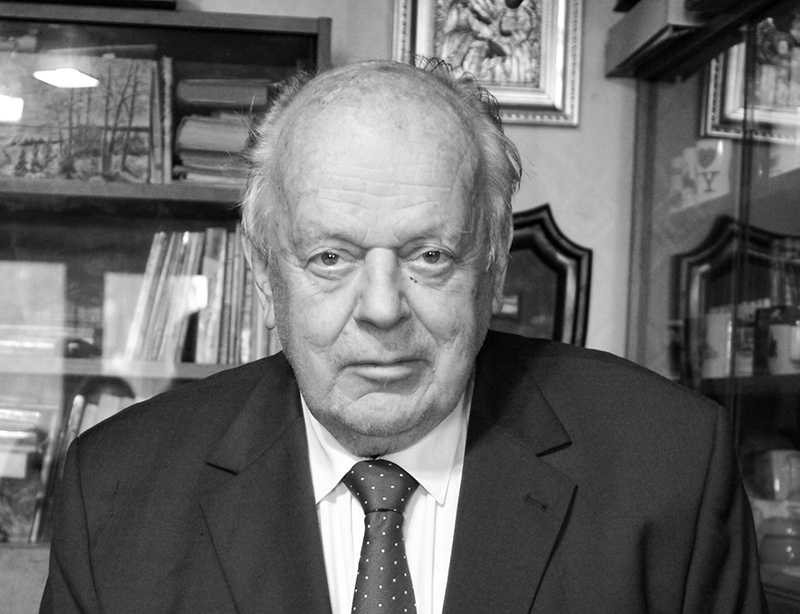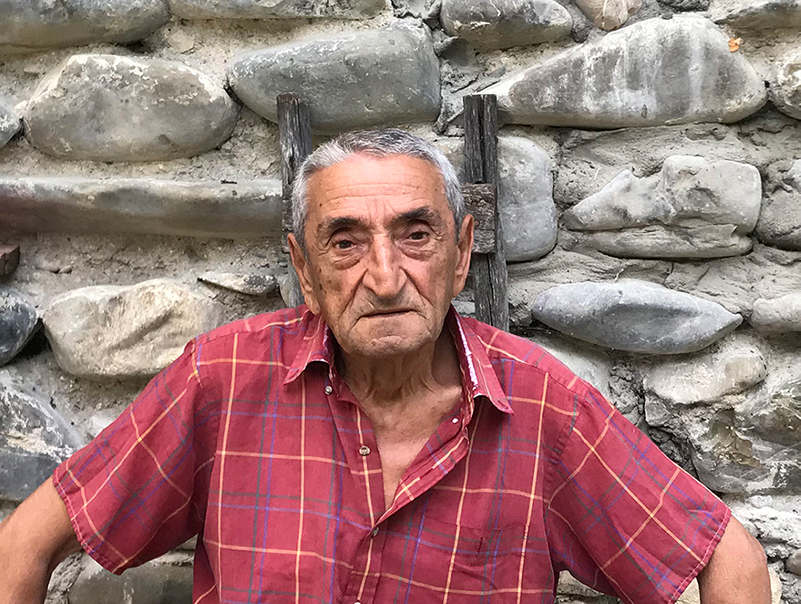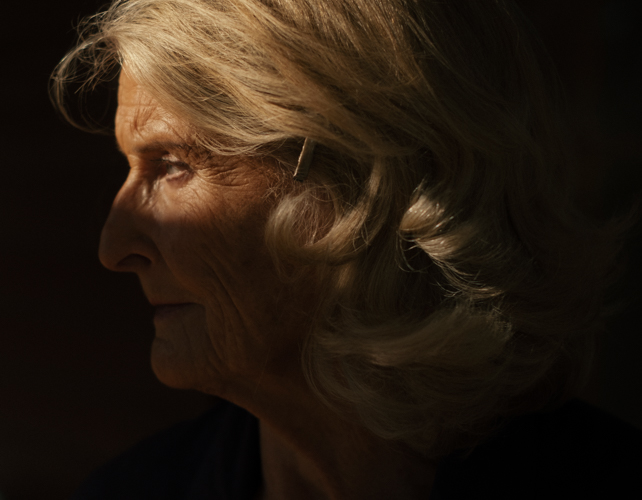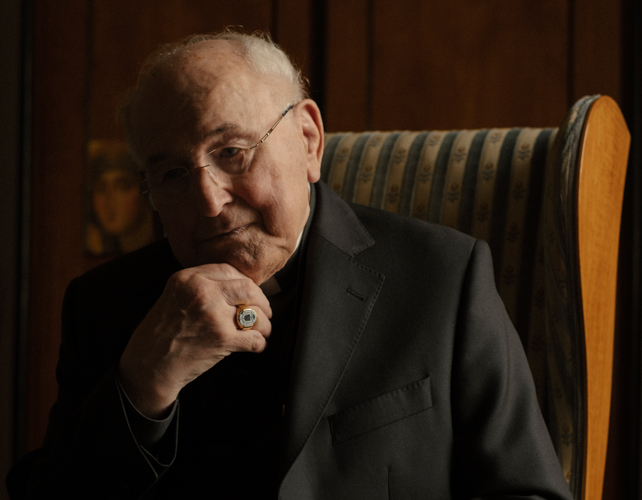Stanislav Stanislavovich Shushkevich, born 1934 in Minsk, was the first head of state of independent Belarus after its secession from the Soviet Union in 1991.
Shushkevich’s father was the renown Belarusian writer, Stanislau Pyatrovich Shushkevich, who spent many years in Siberia having been accused of Trotskyism. Influenced by his mother, who was therefore convinced that science, “dealing with formulae”, would be the safest career option for her son, Shushkevich ended up studying physics, and worked as a trained scientist, and later professor, in the field of radio and nuclear physics before entering politics.
Entering politics, he describes, was “purely coincidental”. Although Shushkevich had been a member of the party since 1967, he did not belong to the party apparatus. He liked his work as a scientist, so when being nominated for political positions, he initially refused.
However, having worked on the aftermath of the Chernobyl nuclear reactor explosion in Ukraine on April 26 1986, and being motivated by the outrage he felt over the cover ups surrounding the disaster, ultimately led him to change his mind. In 1989 he became a People’s Deputies of the USSR, the highest legislative body newly created by Gorbachev.
After the establishment of Belarus as a republic in August 1991, Shushkevich was selected as its first head of state, and in this capacity was one of the signatories of the Belavezha Accords, which legally formalised the dissolution of the USSR, and in its place established the Commonwealth of Independent States. “Talking about legal independence doesn’t make it a fact. But Russia, which always only considered us as part of it, a colony, recognised [our] independence. I consider it a great achievement”. Later, Shushkevich went on to carry out further reforms to help Belarus gain independence from its Soviet past, such as returning its 81 nuclear warheads to Russia.
Following his defeat against Aleksandr Lukashenko at the first direct presidential elections in 1994, Shushkevich has continued to campaign for democracy in his homeland.
In this conversation Shushkevich reflects on the current situation in his country and its relations to Russia and the European Union. He shares his view on the political system back then, and his view that in some aspects very little has changed. Recognising the value of a European perspective on Belarus, Shushkevich who feels both European and Belarusian, draws an honest picture of a country whose inner perception differs from that in the rest of Europe, asking us what allows us to judge what is right and what is wrong and what does this say about our identity.
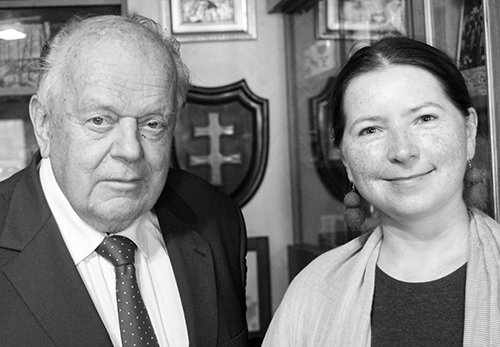
Stanislav Shushkevich was interviewed by Iryna Kashtalian, a historian from Minsk. The interview was conducted in Belarusian.
Interview Highlights
On being a good person
I didn’t dream of becoming a kind of reputable, respected man. I dreamt of not being the last among the other boys, and this sometimes came at a high price for me. Because when I intervened in some fight, my mother always believed that a man of good intent shouldn’t start a fight regardless of whether the truth was on my side or not. And when I came home beaten up, she additionally scolded me for getting into a fight, and pointed to different male classmates as an example. I can honestly say that [my grandmother] taught me to love people. She used to say that you might easily notice bad features in people, however it’s more difficult to notice the good ones. You should look for the good ones and when you discover them, you would find a good man. […] she regarded someone who believed in God as a good man. She considered a man who regretted having committed a sin a good man.
On human decency and dignity
Any politics has requirements to people, including requirements to politicians. This is human decency. And we have problems with it since we are governed by various temporary intentions and do not remember things about the basic human that I’d call Christian features. I think they are the same in other religions but are expressed differently. Apparently, believers will name the Ten Commandments while non-religious people simply believe that human dignity should be retained. This doesn’t depend on Europe and doesn’t belong to Europe but belongs to humankind.
On the importance of Europe as a political or cultural project
“[Being asked about whether Europe is more a political or cultural project] I think that it’s rather cultural than political. And it’s necessary to proceed from culture to politics since it’s easier with culture: you will not be accused of a betrayal. A genuine, true culture always bears a plus mark. The true culture is summed up, and the general culture improves. For this reason, I guess, from culture.”
On his attitude towards the Soviet regime
I can say that I wasn’t among those who colluded, denounced the actions of the Soviet regime. The propaganda was so proficient that I didn’t have the grounds to protest against this, at least, at school. At the university the situation was different. There was more access at the university, I started to get an understanding of writers, poets, events in Hungary, events in other countries. And that justice doesn’t exist. But capitalism seemed to be a very bad system. They said we would have been living in paradise if it weren’t for the capitalist encirclement.
On Russia
I like Russian intellectuals, I like Russian literature. But the behaviour of the Russian policymakers is imposed on us, and it’s mostly imperial. I was a Russophile and Kremlinophile when Yeltsin was there. Because I knew that there was a great president of Russia who supported the democratisation of practices, a respect for national feelings etc. I knew him very well, and I’m proud of the fact that we were friends with him. He was in politics for a long time. He became president on 12 June 1991. I remember his inauguration speech well. That brilliant agenda of a fair and democratic Russia. And then, as I see it, the followers of the imperial politics came to power again. For this reason, I’m now a Kremlinophobe, but have remained a Russophile.
On Marxism
The whole Marxist science, in particular, political science, was narrowed down for me to: “I control and you obey. To stick to a plan at any cost.” That’s all. A different Marxism doesn’t exist.
On his attitude towards the European Union and European politics towards Belarus
At first when I hung to their [EU politicians’] words, I believed them. But when I faced them in practice, I came to realise that they weren’t a conglomerate of likeminded people who knew where, and what was going on in Europe. […] Relationships with Europe are not that simple. The forefront political players are usually very well-educated and very proficient but this mass of political “lightweights” can distract them, at the European Parliament, in the European committees. Sometimes I don’t even know on whom it’s easier for us to lean: on the right-wingers, left-wingers or centrists? This is a structure to work with where a thoughtful approach is needed, suggesting an understanding of it. This requires high qualifications and great patience. And a certain inspiration.
His visions and hope for Belarus in Europe
I would like to see a European future for Belarus. For Belarus to have the same opportunities and rights that the European countries have. The Russian version of justice, that of the Kremlin, is flexible, versatile and inhuman while the European one is human. [….] I always liked manifestations of the Belarusian identity. […] I feel that I’m a European-Belarusian all the time.
On borders
I understand borders in the following way: if relevant parties agreed, and signed agreements, the agreements are to be adhered to above all. If you consider this wrong, this still mustn’t be changed by applying measures as the ones used by the USSR to annex the Baltic Republics and by Russia to annex Crimea. This is unacceptable. Borders must be treated as sacred [but when I think about the abolishment of the borders in the European Union] I consider it the greatest achievement. When I travel from Minsk to Vilnius by a car, I wish we were in the European Union. And when I travel from France to Switzerland, I’m simply glad that the European Union came to an understanding with Switzerland with respect to the borders although Switzerland is not a member state of the EU. It’s nice to travel around Europe, paying no regard to the borders.
